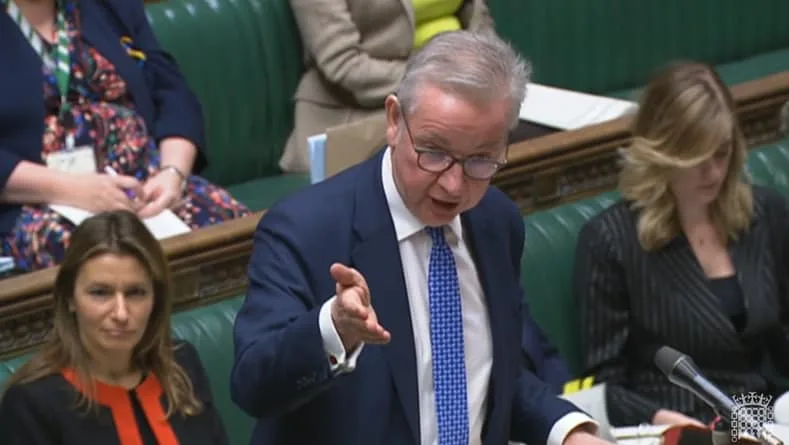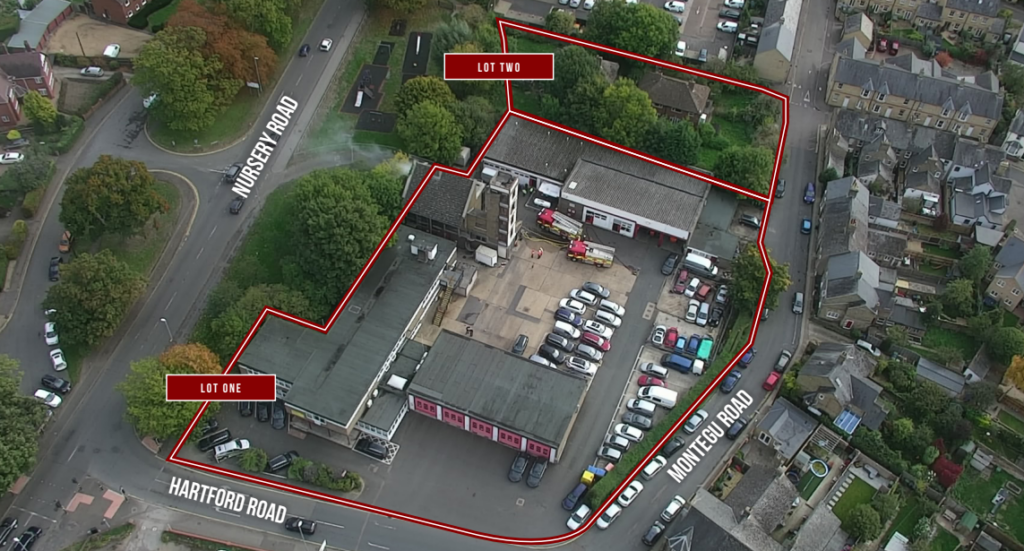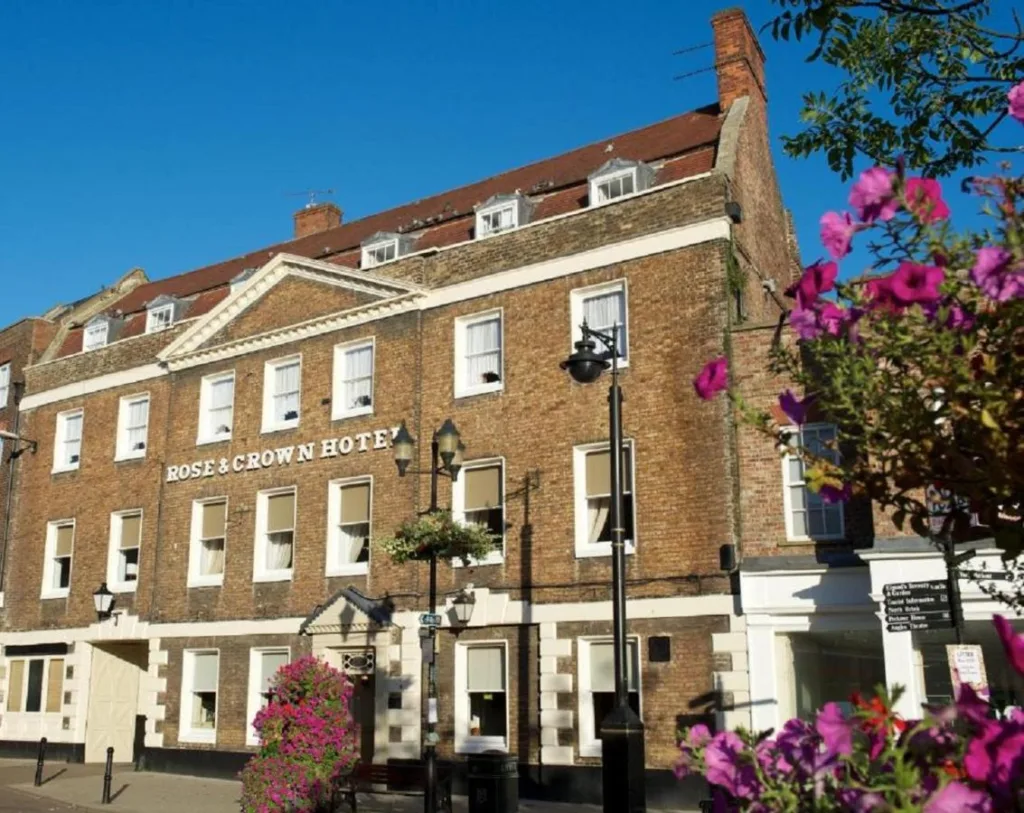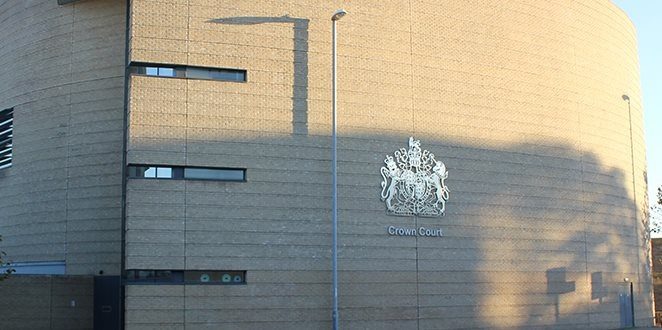The Government has issued a ‘red flag’ warning to the Cambridgeshire and Peterborough Combined Authority (CAPCA) with inherited concerns over former Mayor James Palmer high on their list.
These include references to a former Minister for Local Government’s letter to the then Mayor, James Palmer, on 13 July 2020, “which remains an area that requires work”.

A new letter from the Government says CAPCA has still not resolved issues surrounding the tenure of Conservative Mayor Palmer from when he took office in 2017 to when he was defeated in 2021 and Labour Dr Nik Johnson took over.
Although he is off sick, recovering from heart surgery, the letter in many ways will be a relief to Mayor Dr Nik Johnson.
He will see it as acknowledgement by the Government – for the first time – that the issues raised today were there before he was elected.
Mayor Johnson is also likely to want answers, when he returns, to issues of procurement raised by today’s Government intervention which he believes still require investigation.
And he is likely to appreciate that the Government has recognised many of the governance issues now subject to debate were left unresolved when the Conservatives were in control of CAPCA.
The Government letter, however, does not let Mayor Johnson off the hook.
It also raises raised “significant concerns” which confirm “significant weaknesses” in CAPCA governance during Mayor Johnson’s first year in office.
A statement released by CAPCA tonight (Tuesday) links to an accompanying letter from the Department for Levelling Up, Housing and Communities (DLUHC) issuing the combined authority with a ‘best value notice”.

This sets out the government’s concerns with CAPCA and sets out clear expectations of the actions needed to assure the government that the authority “is making arrangements to secure continuous improvement in the way in which its functions are exercised”.
Max Soule, Deputy Director, Local Government Stewardship at the DLUHC, says ministers “remain concerned” at CAPCA’s capacity to comply with its Best Value Duty under the Local Government Act of 1999.
The Secretary of State is Michael Gove MP, his Minister of State is Lucy Frazer MP for SE Cambs, and there are four Parliamentary Under Secretaries of State. It is not identified which under secretary has issued the ‘best value’ notice.
Mr Soule says “significant” concerns were raised by CAPCA’s external auditor, published on June 1 2022, over governance arrangements which they believed to be “pervasive”.
The deputy director said DLUHC wrote to June 30 2022 to Paul Raynes, then interim chief executive, in response to CAPCA’s formal approach for help in driving forward improvements.
Mr Soule says Mr Raynes was advised that the DLUHC was “taking a precautionary approach” to transferring funds to CAPCA “until we have assurance that there are appropriate plans in place to reach a resolution”.
Key Government concerns outlined were:
- Significant delivery concerns in some of the programmes delivered by the authority.
- Concerns raised within CAPCA in respect of procurement of services to the authority.
- Concerns around partnership working, as outlined in the Minister for Local Government’s letter to the then Mayor, James Palmer, on 13 July 2020, “which remains an area that requires work”.
I obtained a leaked copy of that letter which contained criticism of Mayor Palmer – dating back to the appointment in 2017 of Tom Hunt as chief of staff.

Simon Clarke, Minister of State at the Ministry of Housing, Communities and Local Government, sent the letter to Mayor Palmer and CAPCA board members.
He said a “number of historical problems” had been identified.
These included “factual errors” in the CAPCA constitution, that the CAPCA employment committee was not always part of senior executive recruitments, and that the legal advice behind the appointment of Tom Hunt, now MP for Ipswich, “contained significant omissions”.
Mr Clarke wrote: “My officials can provide further details on any of these points.
“It is essential that the combined authority becomes an example of best practice in relation to applying the Nolan Principles of Public Life, namely selflessness, integrity, objectivity, accountability, openness, honesty and leadership”.
Mr Clarke also warned Mayor Palmer that in order to deliver ambitious projects it was vital for CAPCA to ensure they had robust, professional advice that is clear on the available legal powers, risks, opportunities, challenges and delivery options.
“To date there have been issues which suggest that the delivery capacity of the combined authority requires improvement,” he told Mayor Palmer.
“This includes, for example, the delivery of the £100m affordable housing programme, on which the department wrote to your co-chief executives in June, outlining our differing view on the total additional starts on site delivered to date and confirming that further evidence of progress would be required before the department could make further funding available.”
Meanwhile Mr Soule has warned the current CAPCA board that “given the seriousness of the issues identified, a failure to deliver the level of change required at sufficient pace would be very concerning”.
He said the department expected CAPCA to:
1: Fully engage with the (recently established) Independent Improvement Board and its recommendations.
2: Continue to deliver at pace against the improvement framework and the action plan, meeting the set milestones.
3: Continue in its efforts to conduct investigations at pace and to implement cultural change, particularly in relation to the relationships between officers and members and with the mayor’s office.
4: Endeavour to achieve strong partnership working, built on consensus and shared vision.
5: Ensure a robust, open, and transparent recruitment campaign to make permanent appointments to the senior team in a timely manner.
6: Commit to regular official level engagement on progress against the ‘best value’ notice, on a quarterly basis initially, recognising that this may change according to need over time.
Mr Soule said: “We expect any requests for information to be fully and promptly met.
“The department will also look to the Independent Improvement Panel for regular updates and assurance on the authority’s plan and its delivery as part of our engagement on this matter.”
He said that while CAPCA may continue to receive and be awarded government funding whilst under this notice, receipt of funding does not indicate the department’s broader view of the performance of the authority.
“Nor would it indicate any change in the status of this notice, with individual funding programmes being managed and assured independently by their respective departments,” he said.
The notice will remain in place for 12 months “after which time, should the department deem it necessary to continue to seek assurance through such a notice, the notice will be reissued.
“The notice may be withdrawn or escalated at any point based on the available evidence”.
A CAPCA statement tonight said that the notice “clarifies more formally DLUHC concerns, already shared with the Combined Authority following the Ernst and Young Auditor’s letter issued to the Combined Authority on 1st June 2022 and historical matters”.
It said: “These highlighted significant concerns regarding the governance of the organisation and the need to engage with the department to provide assurance of improvement.
“The issues raised in the letter are those that have been highlighted in the Combined Authority’s Improvement Plan.
“The Combined Authority has been working at pace to address these issues and steps are already underway which have been identified by the interim CEO, Gordon Mitchell, to address the areas of concern.”
When the issues arising from June 2020 were first raised, Mayor Palmer blamed civil servants for the criticism and said he felt they were ill prepared for his style and pace of delivering key projects.
“We would not have been able to bring these developments forward at such breakneck speed without ruffling some feathers and challenging some old ways of thinking,” he said.

“Michael Gove gave a speech recently where he talked about the need to restore faith in Government by changing the structures, ambitions and priorities of the machine and demonstrating a willingness to break the mould of the past.
“This is what I am trying to do, and what this letter is evidence of resistance to in the civil service.
“The culture of government is hostile to risk and experimentation, and decisions in the civil service are geared towards risk aversion.
“Programs are seen to be successful if they fit in with existing systems and assumptions, formed in London offices under the influence of like-minded colleagues, pressure groups and media coverage.
“Civil servants are constantly questioning our processes rather than our results, which means my officers have to spend hours defending our policies rather than implementing them.”
He said that on the political adviser role he took advice taken from senior counsel, described as a “top local government QC who advised at the time it was entirely appropriate” to appoint Mr Hunt.
Civil servants might have disagreed with that advice, but the mayor had at all times acted within the law, remains his contention.
He added: “I was elected on the basis that I would do things differently, so that we could deliver for the people of Cambridgeshire and Peterborough where so many others before had failed. “I would rather be judged on whether I have delivered on my promises, and if we have been able to improve peoples’ lives.”




























